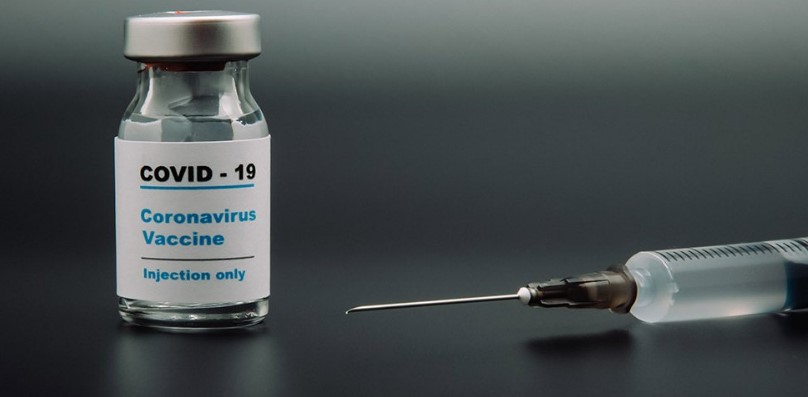As the number of coronavirus cases continues to rise at an alarming rate, the recent rollout of the COVID-19 vaccine has been met with mixed reactions. Some people view it as a shining light at the end of a very dim tunnel, while others are concerned about how quickly it was approved, which is atypical for a vaccine.
Regardless of which side of the fence you sit on, the question on most people’s minds is – Will COVID vaccine be mandatory?
Here’s everything you need to know about mandatory vaccination laws.
The Federal Government on Mandatory Vaccination
Can the federal government make it a requirement for all Americans to get the shot? The short answer is no. A nationwide mandate for the general population to receive the vaccine is not enforceable. However, the government can make it mandatory for certain groups to receive it, most notably, those who work in the healthcare industry.
Nonetheless, just because the federal government can’t do it doesn’t mean that businesses, cities, or states have to play by those rules. These entities can make the vaccine mandatory within their respective jurisdictions.
It’s important to keep in mind that a mandatory COVID vaccine shot doesn’t mean “forced” immunization. Nobody will hold you down and give you a shot against your will. A mandate simply means that there will likely be legal consequences for refusing to follow it. It could be in the form of a tax, fine, or other penalties.
The US Constitution gives the federal government limited powers to mandate a vaccine. Most of this power lies with the states. It has some ways of getting around it, such as making it a requirement to get a passport. Although this has never happened before, it is within the federal government’s powers to do so.

Cities and States on Mandatory Vaccination
Unlike the federal government, individual states have the power to regulate public health. It wouldn’t be the first time either. In the 1905 case of Jacobson v. Massachusetts, the Supreme Court upheld the state’s decision to enforce laws that made it compulsory for citizens to be immunized against smallpox.
Even cities have powers to mandate vaccines. In 2019, New York City made it a requirement for people living in four zip codes in Brooklyn to get immunized against measles or, at the very least, prove that they’d had it before. Those who didn’t comply faced a $1,000 fine.
While it feels like an infringement on an individual’s civil liberties, the real question is – Should vaccines be mandatory? From an ethical standpoint, a mandatory vaccination significantly reduces the risk of harming or even killing others. It protects the vulnerable sections of the population.
It accelerates herd immunity, which benefits the entire society collectively. Although there are certainly less restrictive ways of achieving herd immunity, there’s always the risk that the threshold might fall later, causing a new upsurge of the disease in question.
Mandatory vaccinations in the US can be justified for highly contagious diseases with severe and often fatal consequences.
Mandatory Vaccines for School
With all this talk of compulsory immunization, you’re probably wondering – When did vaccines become mandatory for schools? Contrary to what you might think, the concept of mandating vaccinations isn’t new.
The first state law for mandatory vaccines was enacted in Massachusetts more than 200 years ago. The state later enacted the first-ever school vaccination requirement in 1855.
The Advisory Committee on Immunization Practices (ACIP) arm of the CDC establishes the recommended vaccines children of school-going age should receive, as well as the recommended schedule on when they’re due. The current vaccines required for daycare, pre-K, and school attending children in both middle school and high school include:
- Diphtheria, Tetanus, and Whooping Cough (DTaP or Tdap)
- Haemophilus influenzae Type-B Conjugate (Hib)
- Hepatitis-B
- Measles, Mumps, and Rubella
- Meningococcal Conjugate Vaccine (MenACWY)
- Pneumococcal Conjugate Vaccine (PCV)
- Polio
- Varicella (Chickenpox)
As far as the COVID-19 vaccine goes, schools may have similar vaccination requirements for children before they’re allowed to attend. Universities may also make it mandatory for students, faculty, and staff to be immunized before going on campus. They would be acting within the law if they did.

Mandatory COVID-19 Vaccine in the Workplace
Can your employer fire you if you refuse the shot? Yes, they can – with some exceptions, of course.
It is within your employer’s rights to want to make the workplace environment safer. If getting the shot is integrated into the occupational health and safety rules, failing to adhere to them might cost you your job.
Nonetheless, if you’re part of a union, you may be exempt from the immunization requirement. Anti-discrimination laws may also provide some cover if you would rather not get the vaccine but still keep your job.
The Americans with Disabilities Act, for instance, would require your employer to accommodate you if you cannot get the vaccine for medical reasons. That could be classified as a disability. However, your employer may require that you limit contact with other people and wear a mask while you’re working.
The Civil Rights Act of 1964 could also offer some protection. If you have a religious objection to receiving the COVID-19 vaccine, your employer would have to make a reasonable accommodation, provided they can afford it.
Keep in mind that these anti-discrimination laws only apply to companies that have at least 15 or more employees. The same level of coverage isn’t provided for smaller businesses.
Stores, Restaurants, Airlines, and Stadiums on Mandatory Vaccination
Businesses can refuse to serve you for any reason. They can, therefore, make the vaccine a requirement before you’re allowed into their premises. It is pretty much the same as the “No Shirt, No Shoes, No Service” policy you’re likely already familiar with. In this case, it would be – “No Vaccine, No Service.”
That being said, given the backlash business received (and continue to receive) against mandating customers to wear masks before they can receive service, enforcing a vaccine-before-service mandate will be far more difficult. The point is – if they were to do it, they wouldn’t be breaking any laws.
Have a question? Live Chat with one of our legal experts today.
